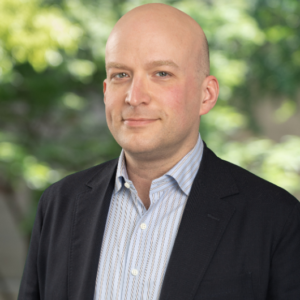On Paleo and Faith in Government
July 15, 2015
By Mike Konczal
Our Rewriting the Rules report is in the news as part of a debate over the more liberal push in economic thinking. Matt Yglesias argues that this report and the new agenda “reverse the neoliberal formula.” He coins the term “new paleoliberalism” to describe it. David Brooks adds to this, arguing that said paleoliberalism displays “a naïve faith” in government. I want to respond to these three points in turn.
First, Yglesias says the new agenda breaks with the consensus. The old consensus, to him, was that “[t]he main way the government can impact the pre-tax distribution of income is by providing high-quality education,” and if that fails, “progressive taxes should fund redistributive programs to produce a better outcome.”
I think focusing on a new consensus is correct, but I’d think about it a different way. For us, the old consensus was built around two economic folk theories: that as an economy matures, inequality will decrease and all incomes will go up; and that any efforts to combat inequality have a serious negative impact on growth. (It’s not clear whether Kuznets or Okin, respectively, would have agreed with the extreme versions of their arguments that became this consensus.)
The new liberal economic consensus has three elements. To start, you can’t really distinguish between pre-and-post tax income the way these old arguments do. The market structures that determine final income, including taxes, also are a serious determinant of market income. This is pretty obvious if you say it in English: The rules of the economy matter. But this gets lost in the consistent idealization of abstract, perfect markets.
Also, in a world without perfect markets, efforts to fight inequality have fewer strict tradeoffs than people imagined, especially at the margins. We certainly see this internationally, with a wide variety of efforts to change the distribution of income and no obvious impact on growth. As a result, as economies grow, inequality can do any number of things—but it is a choice determined by the market.

The second question is whether the new liberal consensus is “paleo.” Inasmuch as the term means nostalgia, recycling old theories, and is bordering on revanchist, I like to think it is not.
The focus is very much a reaction to the facts on the ground, including a financial system that isn’t working to channel good investments, new forms of monopoly power, lack of institutions that support the working lives of women, a criminal justice system that has become too punitive, full employment in a period of weak demand, and so on.
The tools remain those that Franklin Roosevelt formalized: a mixed economy, a regulatory state, and social insurance as the bedrock of a thriving economy. Those are the right tools to build on. But how those tools are deployed changes with the times.
There is a strain of liberal thinking that imagines we can wish the labor movement of the 1940s or the 1890s back into existence. Our report has a detailed labor section that I think is really important. But it doesn’t simply imagine we can recreate an economy that no longer exists. Instead, it builds from where we are now.
As a third point, David Brooks, talking about Clinton but mentioning the same liberal economic consensus as Yglesias, asks if we have too much “unchastened faith in the power of government,” a faith that is “epistemologically naïve.”
What strikes me about this argument is that the Republicans have no less faith in the power of government. They have faith that the government can privatize social insurance in a way that won’t involve weaker security and higher costs. They have faith that if the government gives employers wage subsidies for poorer workers, employers won’t simply pocket them in wage bargaining. They have faith, against evidence, that the government having no taxes on capital will cause a boom in private investment. They have faith that the government cutting taxes will more than make up the lost revenue. Their faith leads them to conflate building a robust civil society and economic security with laissez-faire economics.
You could say that this is a faith in “the market.” Yet rules and institutions will always shape markets; the nature of rules is what determines what the economy will look like. The transfer of power to employers and owners isn’t “less government” in any real sense of the term. Structuring markets to give employers and owners more power based on a faith that this will usher in more prosperity is not just naïve; the past few decades have shown it to be a failure.
